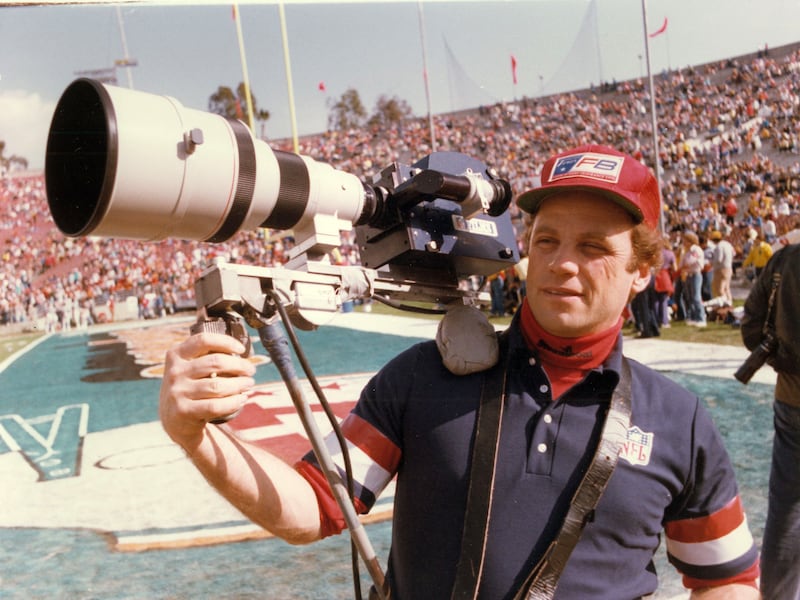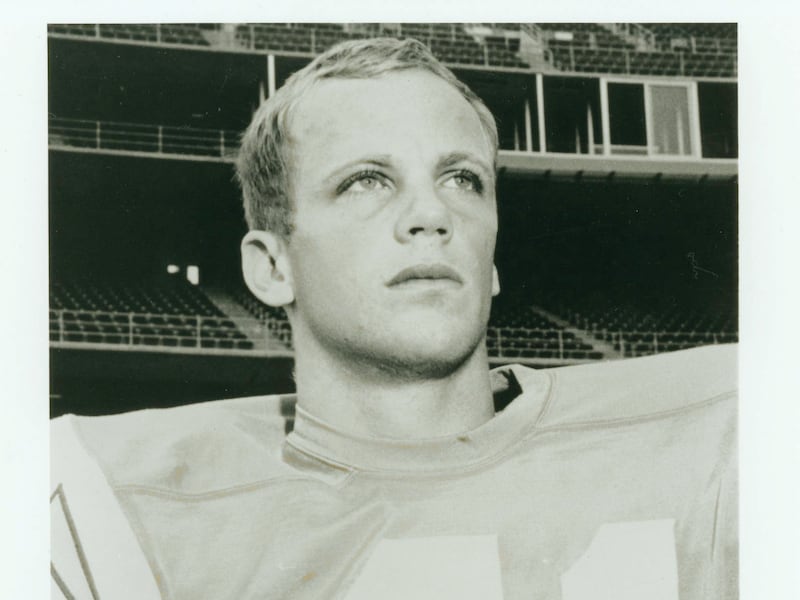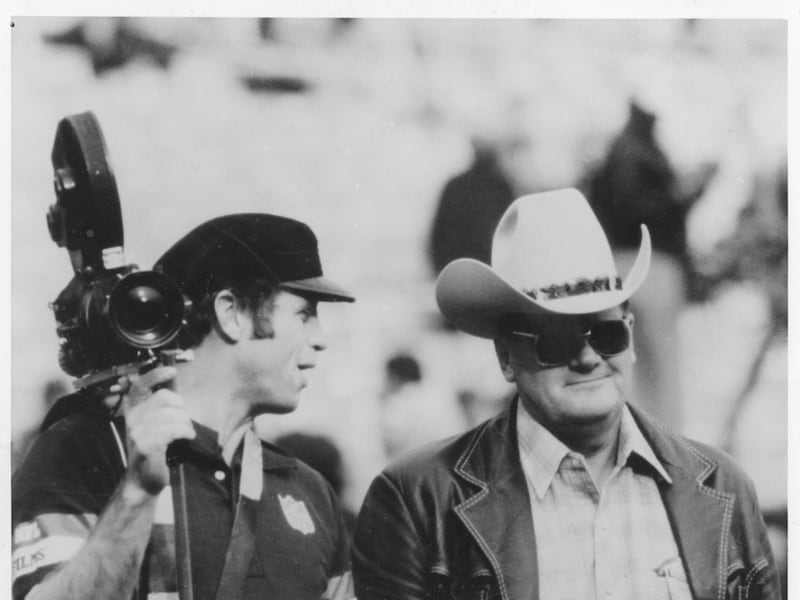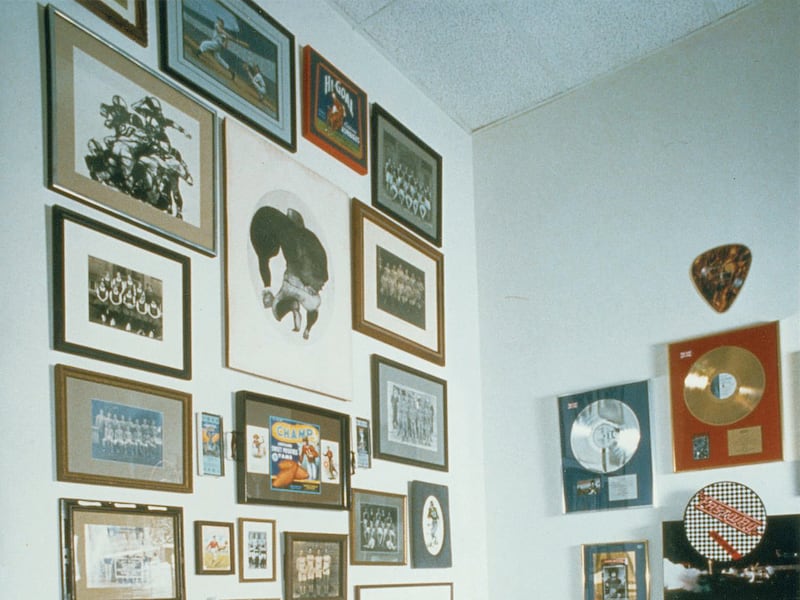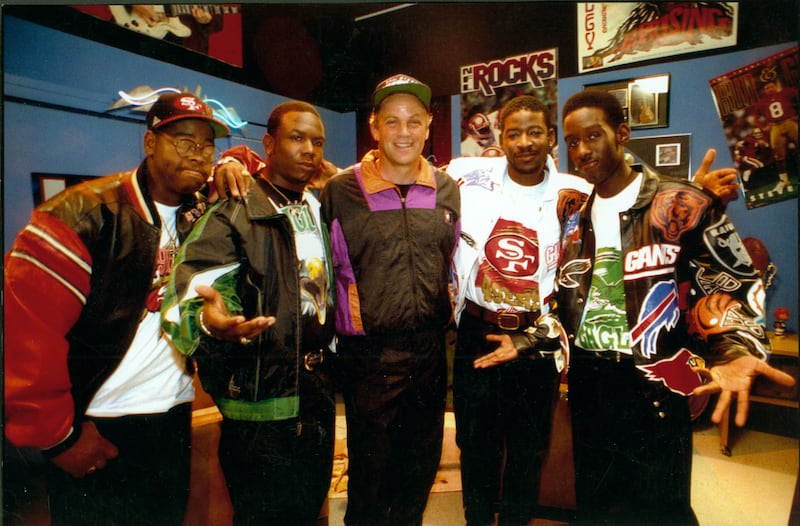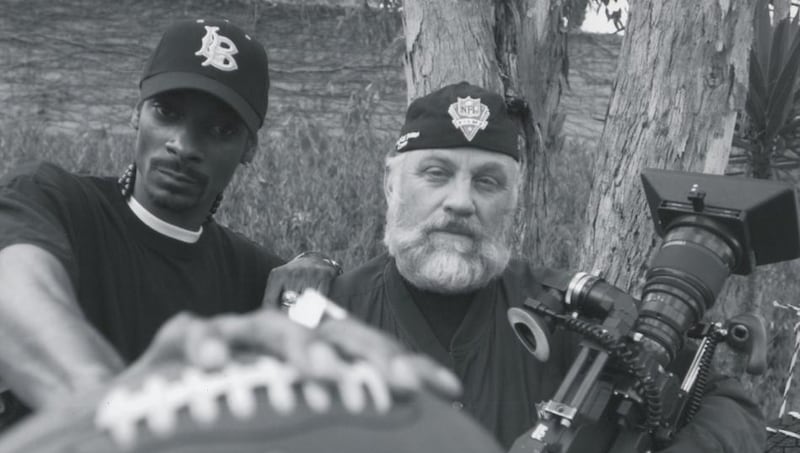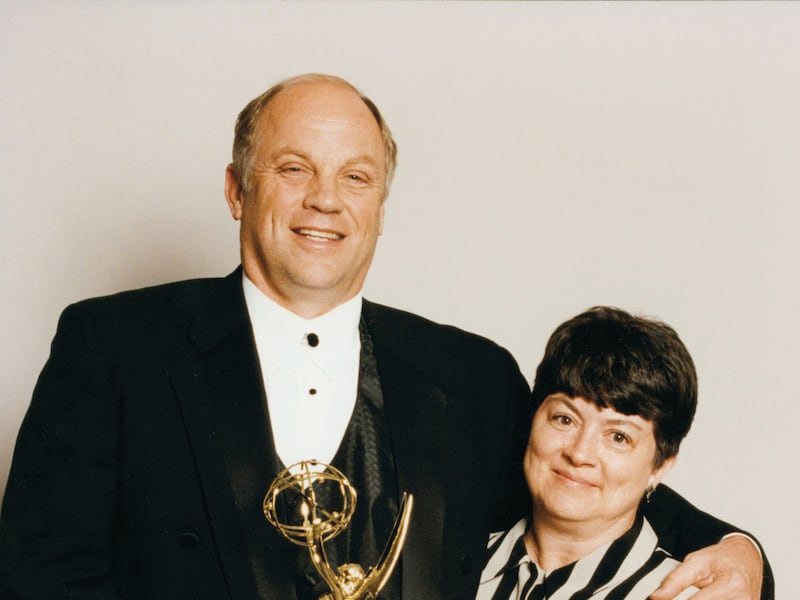SALT LAKE CITY — It was 1969. The San Diego Chargers had just cut Phil Tuckett, a free agent wide receiver, from the team.
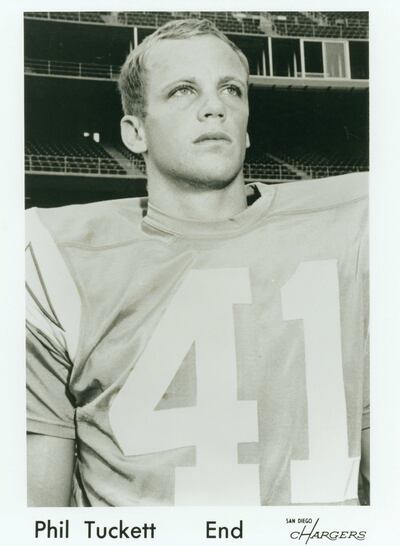
As the 24 year old, his pregnant wife and young son drove across the country so that he could start a completely new career in Philadelphia, he worried.
"The further I got, the more I wondered if I was doing the right thing, or whether or not I was stepping off into a void that I didn't know anything about," Tuckett, 72, told the Deseret News.
The journey had started months before as he tried to carve out a place for himself on the team. A former English major, he wrote a weekly article for a small newspaper. The Chargers' public relations manager took notice and asked if Tuckett kept a diary of his year as a free agent.
"I fibbed a little bit," Tuckett said. He hadn't actually kept a diary but went home and promptly started one, which Sport Magazine published in an article.
When Tuckett later ran into Ed Sabol, the man who started NFL Films, he went up to him, introduced himself and showed him the article.
Sabol looked at the first day's entry, closed the magazine and said, "I need you to work for my company … because you're the first football player I ever met that could write," Tuckett recalled.
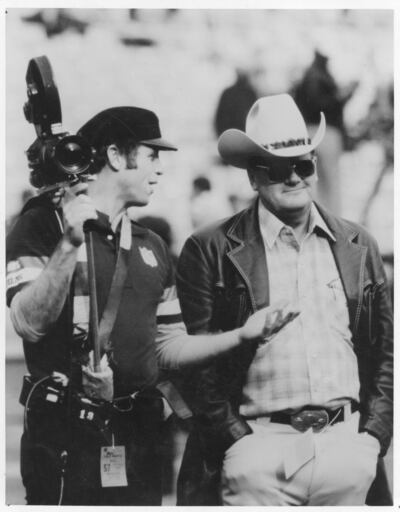
The athlete, who had played football since age 8 and was a star on his teams at Olympus High School, Dixie College and Weber State, knew nothing about film at the time. He declined, but Sabol gave him a hard sell.
"You're wasting your time playing football. You should come with me. … I'll teach you a profession right from the ground up. … I'll teach you a profession that you'll make good money, you'll support your family, you'll have fun, and you'll do it the rest of your life," Tuckett remembered Sabol telling him.
"Everything that he said came true."
Two weeks later, Tuckett got cut from the Chargers — he later learned Sabol himself probably requested the coach cut him so he could hire him.
"It made me a little mad, it made me a little bit embarrassed that the coach gave up so easily … but it all worked out so well that is was more of a teasing thing where I would occasionally bring up the fact that he got me fired from my job," Tuckett said.
As he learned the art of filmmaking, he soon realized he'd found his passion. He says there are thousands of variables that go into it, making it "endlessly challenging" and "endlessly fascinating."
At first, he needed to shake the "jock" label and establish himself as a legitimate filmmaker. And Sabol treated him differently because he was his "protege," which bothered some coworkers, Tuckett said.
His first big break arrived when he had an idea to do a documentary on a minor league football team, because he played minor while he was inactive on the Chargers.
"I just loved the whole ambience of playing with these rogues and misfits in minor league football. They cared about it as much as the NFL guys, but they were making $20 a game because it was minor league," Tuckett said.
He found a team near Philadelphia and convinced his company to let him do a five-minute story on them. That story turned into an hourlong documentary that played before the 1974 Super Bowl. It put him on the map.
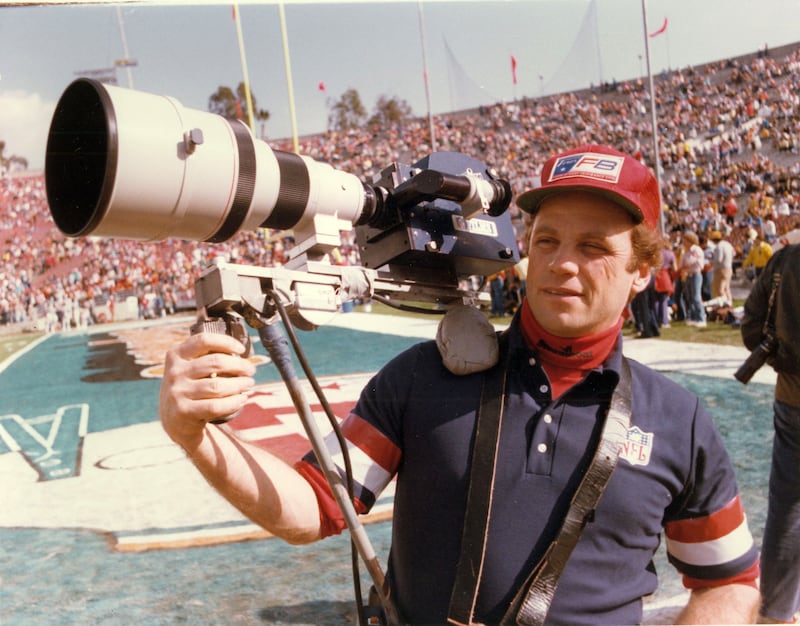
"And I thought 'OK, I'm here. I'm a factor, I've got my boat set out for me that I'm going to follow the rest of my professional life.'"
And in the nearly 50 years since, Tuckett has been recognized for his writing, editing, directing and doing camera work with productions that earned 29 Sports Emmy awards and an Emmy award for best documentary on television.
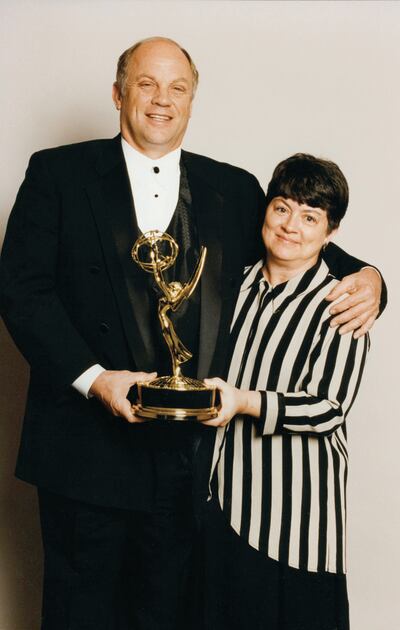
"I gave (the trophies) to kids and grandkids. Some of them got broken with kids playing with them. What can you do with 30 golden statues holding a ball? … One is enough, in a sense."
During his time at NFL Films, he also convinced the company to start a special projects division, which made videos for musicians. Tuckett worked with Metallica, Pearl Jam, Stevie Ray Vaughn, Cyndi Lauper, Good Charlotte, B.B. King and George Harrison. He even went on the road with Journey for a documentary at the height of the band's popularity.
"I think I liked working with them the most because my kids were all of an age that they were fans of that band. And so then they got to meet them and travel around and go to their concerts and be backstage," Tuckett said.
In 2008, after 38 years, he felt it was time for him to leave NFL Films. He planned on staying back east and working as a freelancer until he received a call from then-president of Dixie State College, Lee Caldwell, who offered him a position creating a film department at the school.
Tuckett and his wife, Judy, decided they were ready to return to the place where they first met. He built the film department on the philosophy of "learning by doing," setting the department up like a working production company.
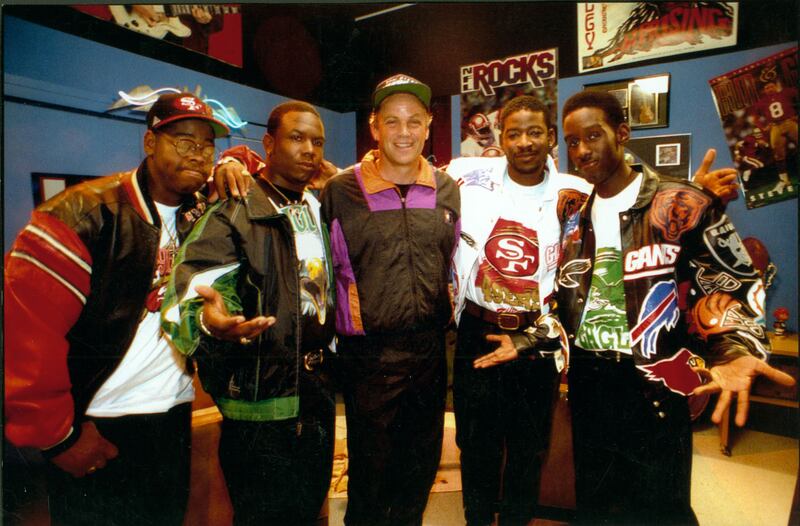
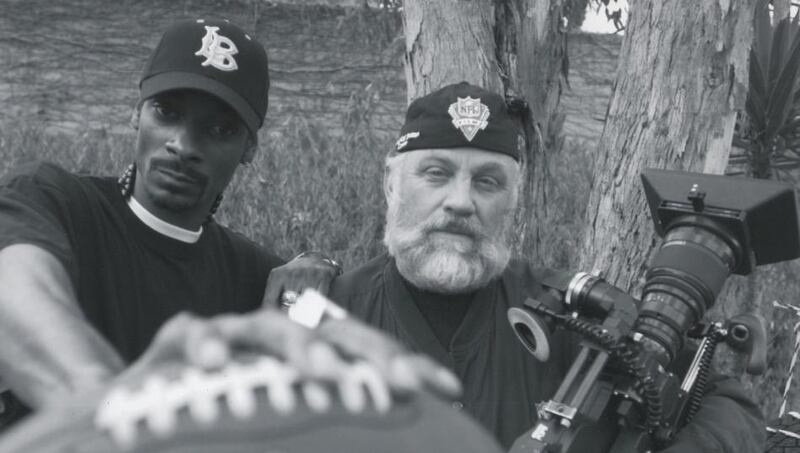
"Contributing to a collaboration is what team sports is all about, and it's what making movies is all about. So we try and give our students the opportunity to work in that context, of 'Here's a group of students in a class, everybody has a job, and let's go make a movie,'" Tuckett said.
He's been at Dixie for 10 years now and says he hasn't once regretted the decision.
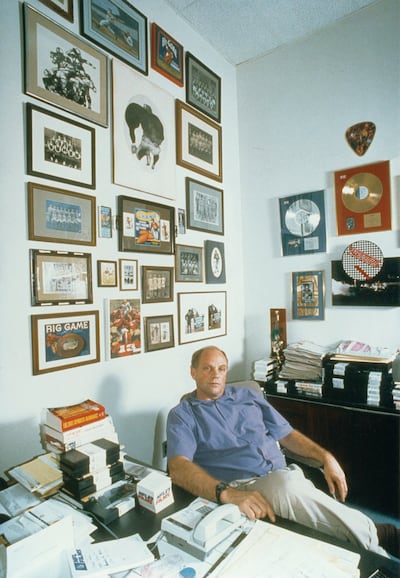
Tuckett and nine staff members, students and former students recently went to Los Angeles to film a commercial for the Genesis automotive line. The crew had two days to shoot the commercial — in a city that Tuckett says has the toughest filming restrictions — before the commercial played during a Monday night football half time show.
"Because we work together on a daily basis at school, we function like a synchronized swimming team," Tuckett said. They got it done.
"I think we're a little bit far from the center of gravity as far as Utah goes, so we don't maybe get the respect that we should have, in my mind. But all we can do is put ourselves out there and show what we're capable of," Tuckett said.
And though he's been involved in a wide array of projects, Tuckett says his best work in film is still ahead of him.
"As long as you live and can see and hear, and your mind works, you can be making movies. And they'll be better movies than you were making when you were a younger filmmaker. … I'm not interested in playing golf, I'm not interested in retiring. I'm not interested in taking it easy," Tuckett said.
"It's been a rich and rewarding career, but my best film is yet to come, and I'll know it when I finally hit it right on the head."

